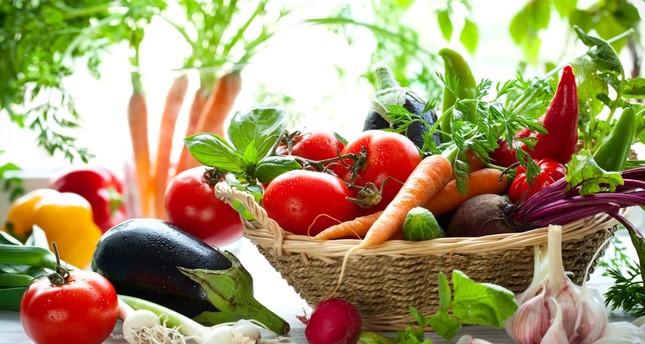Healthy nutrition tips for those fasting in Ramadan

Muslims around the world will be fasting for a month as of May 6, willingly abstaining from eating and drinking. But fasting can be a little difficult, especially for those in the northern hemisphere, as the days are longer.
Ramadan is a time of self-reflection and self-purification, both physically and spiritually. Therefore, we need to learn how to maintain a balanced and healthy diet. First of all, it is necessary to consume foods in four groups which are milk and dairy products, meat-egg-legumes, vegetables-fruits and breads-cereals in this month in order to have healthy and balanced nutrition.
You should arrange your meals as two main ones: suhoor or the predawn meal and iftar, the fast-breaking meal. You should also have two snacks after iftar at 1 to 1.5-hour-long intervals, as well.
One of the key points in fasting is eating small portions. The suhoor meal that you will eat before starting to fast is so important for your health. It should not be forgotten that starting to fast by only drinking water or without eating anything is unhealthy. This nutrition style increases the hunger which continues for nearly 12 hours to 18 hours for the body. As a result, the preprandial blood glucose decreases at early hours and the day is spent effetely. At the suhoor, you should have a light breakfast comprising of milk, egg, cucumber, green vegetables and whole wheat bread or prefer a meal comprising of soup, vegetables or olive oil dishes.
In order to increase the body’s resistance and provide adequate vitamin and mineral intake, you should frequently consume vegetables and fruits. Staying away from too oily, salty and floury foods will be appropriate.
You should also break your fast with breakfast food items like cheese, tomatoes and olives or a bowl of soup. After 15 minutes, it would be healthy to continue your meal with dishes low in fat, vegetables dishes and salads. You should prefer foods that increase the blood sugar in a balanced way like bulgur pilaf, whole wheat bread or pasta.
In order to replace water and minerals that are lost because of the hot weather, you should give importance to consuming plenty of water and liquids, like ayran and fruit juice. Instead of desserts with sherbet, you should prefer milk or fruit desserts.
The most known feature of Ramadan in terms of food culture is the variety and abundance on iftar tables. As there is a decrease in blood sugar during the day due to fasting, you need to eat fast and a lot at iftar. Iftar tables generally have double or triple the amount of food that can make a person feel full. The brain gives the feeling of saturation 15-20 minutes after eating. When a high amount of high energy is taken very fast, it provides the basis for weight gain in the following days.
Therefore, the food should be eaten slowly and should be chewed well before swallowing. Short-distance walks are useful for helping digestion after iftar. In the summer months, consumption of fatty foods and fries in iftar or suhoor should be avoided; meals should be cooked in vegetable oils, like sunflower oil, corn oil, hazelnut oil or olive oil. Olive oil should be preferred in salads. Besides, instead of frying and roasting, cooking methods such as grilling and baking should be preferred.
Foods high in fiber content, fresh and dried fruits, as well as nuts, should be consumed to prevent constipation due to the changes in nutritional patterns. It should not be ignored that fasting does not make significant changes in the metabolic balance of healthy people; on the contrary, it can be a healthy practice.
However, it may have negative consequences for patients with diabetes and liver complications or in special cases, like during pregnancy or lactation. People with chronic illnesses should consult their physicians before fasting.
[“source=dailysabah”]
